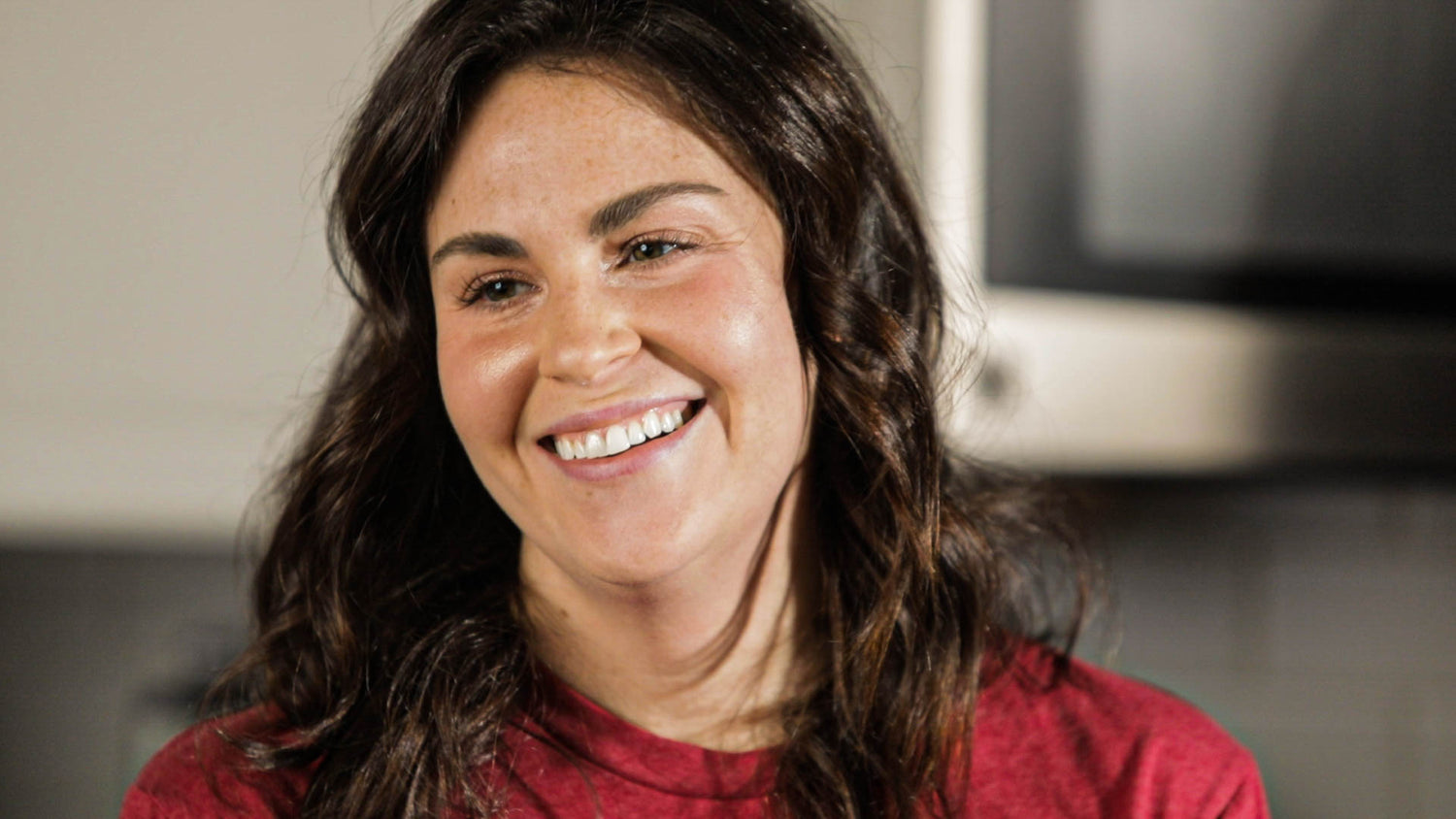If you keep up with the ever changing diet trends, you’ve probably heard of the nutrition documentary The Game Changers. Through promoting vegan diets, particularly for active health-minded individuals, the filmmakers often refer to vegetarian and vegan diets or plant-based diets as if they are all interchangeable. But at the documentary's core, it’s vegan propaganda. The director of the film even admitted in an interview after the films release that they kept using the word ‘plant-based’ because it’s a more palatable way to say veganism and would not turn people off essentially. The film goes through claims ranging from you should love animals to animal farming is destroying the planet to animal products will kill you (most of which is based on bunk science or misrepresented scientific studies).

In fact, to refer to The Game Changers as a documentary is probably a bit generous. As a Registered Dietitian, it is always extremely frustrating to watch food and nutrition documentaries that present a whole lot of half truths, misleading generalizations, and sometimes flat out lies.
I’m not going to debunk peanut butter sandwich sizes versus steak portions or attack the gross amount of anecdotal evidence by handpicked vegan athletes. Honestly, anyone who is semi-familiar with the UFC or who possesses a basic level of common sense knows that Nate Diaz didn’t beat Conner McGregor because he passed on the steak entree. But here I am- trying to defend science, with well... science.
I want to start by acknowledging vegan and vegetarian diets can offer healthy, balanced and nutrient-dense eating patterns when appropriately planned, even for athletes with increased energy and macronutrient demands. I also want to point out that everyone should be eating a diet heavy in plants that should include a variety of raw and cooked fruits and vegetables. Is there a superior diet? I think so. But the majority of you may be surprised to hear that it doesn’t involved extreme eating patterns eliminating entire food or macronutrient groups.
Let’s dive into a few of the points discussed in the film and you can decide for yourself.

1: Gladiators ate a predominantly vegetarian diet.
The Game Changers start their argument against the consumption of animal products by stating that Roman gladiators ate mostly a vegetarian diet. So if it was good enough for gladiators, it should be good enough for you, too. The film references a 2008 article published by the Archaeological Institute of America. This article is not a scientific study but discusses research and findings that were being conducted and then later published in 2014 examining stable isotopes and trace elements in the bones of gladiators and locals from a gravesite in Ephesus. The study reported results from forty sets of bones, twenty of which were determined to be gladiators. By examining the different levels of carbon, nitrogen, sulphur, calcium and strontium in the bone, researchers were able to glean insight on what the eating patterns may have been for these individuals.
Historical texts indicate that the Roman diet was nutritionally diverse and related to hierarchical ranking in society. Gladiators were mostly slaves and prisoners (though there were also volunteer gladiators that went to a training school and would take their education into the arena with a much higher probability of success instead of sudden death). The results of the testing revealed that staple foods were wheat and/or barley. This is in line with the nickname found in ancient texts of barley eaters (hordearii), which was meant to be a derogatory term. What the bones also indicated, which wasn’t highlighted in the film, was that the nitrogen levels in the bone indicate some consumption of meat and dairy products. Some of the bones found at this gravesite had a higher sulphur content indicating that seafood was also a staple in the diet. It is believed that these individuals migrated to Ephesus from other geographical locations.
This study’s findings indicate that gladiators from this region ate a mixed diet that most likely including barely, legumes, vegetables, meat and dairy. There is also some evidence that plant ash (what we now call culinary spices) were consumed as teas or beverages and supplemented the diet with calcium. Other gravesites have since been uncovered in Thebes which show seafood played a larger role in their diet. It appears gladiators ate what was accessible and offered to them based on their social ranking. Their diet included lots of plant-based foods, along with some animal products. A balanced diet—such a novel idea.
2: When we sacrifice carbohydrate calories for protein calories in our diet, what ends up happening is we will develop really chronic carbohydrate or glycogen depletion.
Let’s clarify. An adequate or even high protein diet is not synonymous with a low carbohydrate diet. I want to start to dissect this point with a little breakdown in basic metabolic nutrition.
Glycogen, in the simplest terms, is stored carbohydrates. Adequate carbohydrate stores are important for physical activity ranging from high-intensity interval training to ultra-endurance racing. The body stores carbohydrates as muscle glycogen, liver glycogen and blood glucose. Each of these stores can hold additional energy for us to access as needed. Below are some rough estimates that will vary from person to person, but I just want to give you an idea about just how much energy your body can get from adequate stores.
Muscle glycogen 1,200- 1,600 calories
Liver glycogen 300-400 calories
Blood glucose 20 calories
TOTAL 1,520-2020 calories

That is a lot of energy stored in your body thanks to carbs that can be utilized for optimal performance. Low carbohydrate availability can lead to reduced muscle glycogen stores and may result in decreased athletic performance, compromised immune function and muscle protein breakdown. So one thing we can agree on here is carbohydrates and glycogen play an important role in achieving peak human performance. However (and this is a big however), the consumption of animal products for protein will not decrease your glycogen stores. In fact, consumption of protein in any form will not decrease your glycogen stores.
What will lower your glycogen stores are very low carbohydrate diets that are not appropriately planned for your needs and activity level.

3: Where did all the protein you get when you eat a steak or a hamburger come from? It came from the plants that the cow ate.
The film is trying to prove that you don’t need animal protein to be big and strong and they would be correct but with an extremely flawed argument. If you ate the grass a cow ate as your source of protein, you would be in serious trouble. Cows can extract nutrients from food that other animals and humans cannot digest thanks to their four-compartment stomachs. Cows can eat things like seed coats, shells and stems. Cows also have the bacteria in the rumen to assist with the digestion of food that make them capable of thriving on plant-by-products.

4: That every single plant contains all the essential amino acids in varying proportions.
This misleading statement cited a study from 1994. After reviewing the literature, I still don’t know how the producers of this documentary came to this conclusion.
The commonly highlighted (possible) problem with plant proteins is that most of them are considered “incomplete” proteins. This phrase, incomplete proteins, is referring to the fact that one or more of the nine essential amino acids are not present. The essential amino acids are the ones that cannot be made by the body so it is important that we get them from food.
- Histidine
- Isoleucine
- Leucine
- Lysine
- Methionine
- Phenylalanine
- Threonine
- Tryptophan
- Valine
However, this potential problem with plant proteins can be avoided by eating a variety of plant protein sources throughout your day. It was previously believed that you need to have complementary protein sources paired at each meal to make sure you get all essential amino acids. Thanks to newer research, we now know that as long as you are thinking big picture throughout your week and varying protein sources, you are good to go.
So yes, you can get all your essential amino acids from plant sources but you will need to vary those sources to make sure you get a complete adequate amount. The other issues with plant protein sources you may commonly hear about are the protein quality and digestibility.
It was previously believed that vegetarians needed to have a higher protein intake amount compared to omnivores due to the lower digestibility of plant proteins. However, with variety in your diet and plant protein sources you can avoid this potential problem as well. For example, if you are only eating legumes and cereal grains which have difficulty digesting plant proteins you may need to eat at the suggested 10% high protein recommendation compared to omnivores. But add some variety like soy protein which is more readily digestible and you will most likely be meeting your protein needs.
5: “Suddenly it all made sense. The reason an animal based diet isn’t good for us is because our bodies aren’t built for it. It’s simply the wrong type of fuel.”

No. Just no.
Final Food for Thought
The Game Changers did an excellent job playing to emotions with arguments like plant-based burritos increase length and size of male erections but that doesn’t mean we should demonize animal products and disregard breadths of scientific evidence. There were so many silly false claims and misrepresented science, it was hard to stomach.
I want to highlight that you can be a vegetarian or vegan athlete and encourage you to check out this helpful article to plan a nutritionally balanced diet. My point in all this is- you have a choice in what you eat, BUT do not base your decision on lies or shame others who choose a different eating pattern. You can have a healthy diet with animal products or without. Each requires balance, and some thoughtfulness in how they are executed to be nutrient dense and adequate for your own individual needs.

Resources
- https://archive.archaeology.org/0811/abstracts/gladiator.html
- https://journals.plos.org/plosone/article?id=10.1371/journal.pone.0110489
- Karpinski C, Rosenbloom C. Sports Nutrition: A Handbook For Professionals. 6th ed. Chicago: Academy of Nutrition and Dietetics; 2017.
- https://www.fda.gov/animal-veterinary/animal-health-literacy/how-cows-eat-grass
- http://pilarmartinescudero.es/Ene2018/Plan%20protein%20in%20relation%20to%20human%20protein%20.pdf
- https://www.ncbi.nlm.nih.gov/pubmed/1973470
- https://www.ncbi.nlm.nih.gov/pmc/articles/PMC5598028/pdf/12970_2017_Article_192.pdf





Leave a comment
This site is protected by hCaptcha and the hCaptcha Privacy Policy and Terms of Service apply.